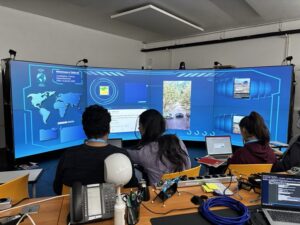Séminaire
A Critical Analysis of Optimal Fingerprinting Methods for Climate Change through the Lens of Linear Response Theory
Valerio Lucarini
Detection and attribution studies have played a major role in shaping contemporary climate science and have provided key motivations supporting global climate policy negotiations. The goal of such studies is to associate observed climatic patterns of climate change with acting forcings – both anthropogenic and natural ones – with the goal of making statements on the acting drivers of climate chang
Description
In most cases, detection and attribution techniques are based on the concept of Pearl causality: one investigates the changes in a system following the adoption of alternative courses of action. The statistical inference is usually performed using regression methods referred to as optimal fingerprinting. We show here how a fairly general formulation of linear response theory relevant for nonequilibrium systems provides the physical and mathematical foundations behind the optimal fingerprinting approach for the climate change detection and attribution problem.
Our angle allows one to clearly frame assumptions, strengths and potential pitfalls of the method, and relate the effectiveness of detection and attribution to model error, to the acting climatic feedbacks, and to the proximity to tipping points. The take-home message is that, by and large, detection and attribution is based upon a solid framework but a deeper look into the concept of natural variability is needed.
Références
- V. Lucarini, M. Chekroun, arXiv:2212.02628 (2022)
- M. Santos Gutierrez, V. Lucarini, J. Phys. A 55 425002 (2022)
- M. Ghil, V. Lucarini, Rev. Mod. Phys. 92, 035002 (2020)
Informations supplémentaires
Sur place
Laboratoire de Météorologie Dynamique (LMD-IPSL) Salle Serre, École Normale Supérieure, 24 Rue Lhomond, 75005 Paris
En visio
Zoom : https://cnrs.zoom.us/j/95886644122?pwd=VG9UK2E3clVtNW16TmJuVVQwNFh4UT09
ID : 958 8664 4122
Password : 3G1G0w






